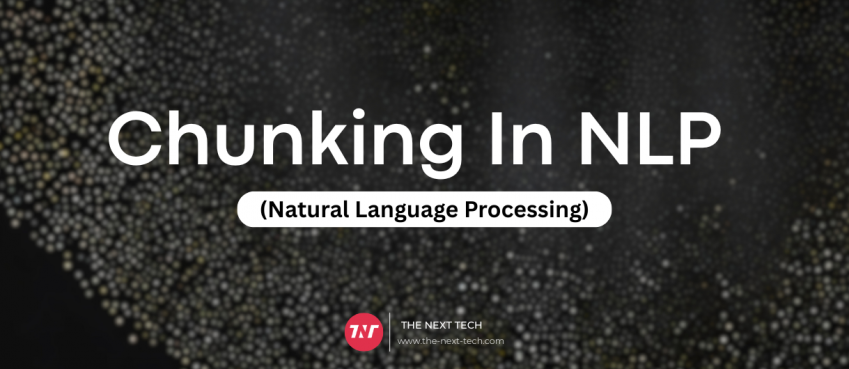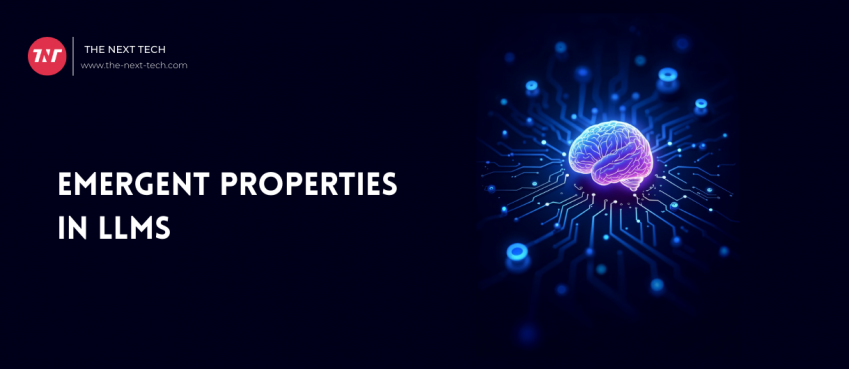
In today’s fast-paced world of marketing, staying ahead of the curve is not just a desire, but a necessity. The digital landscape is evolving at lightning speed, and traditional marketing strategies may no longer cut it. That’s where machine learning comes into play, revolutionizing the way we connect with our audience and drive business growth. By embracing the power of machine learning in marketing, businesses can unlock a treasure trove of insights, create personalized experiences, and optimize their marketing efforts like never before.
In this article, we’ll dive deep into the fascinating realm of machine learning, exploring how it works, its benefits, and the countless ways it can elevate your marketing game. So, buckle up and get ready to discover the incredible potential of embrace machine learning in marketing as we embark on this thrilling journey together.
Understanding Machine Learning in Marketing
What is Machine Learning?
Machine learning refers to the ability of computer systems to automatically learn and improve from experience without being explicitly programmed. It involves the development of algorithms that can identify patterns and make predictions or decisions based on data inputs. In marketing, machine learning algorithms can analyze large volumes of customer data and extract valuable insights to inform marketing strategies.
How Does Machine Learning Work in Marketing?
Machine learning marketing is transforming the landscape of marketing by empowering businesses to make data-driven decisions and unlock valuable insights. But how exactly does machine learning work in the context of marketing? It starts with the accumulation of vast amounts of data, ranging from customer interactions to online behavior. This data is then fed into sophisticated algorithms that use statistical models to uncover patterns, correlations, and trends. By analyzing this information, machine learning algorithms can generate actionable insights that help marketers optimize their campaigns, personalize customer experiences, and drive better results in the ever-evolving world of marketing.
Benefits of Using Machine Learning in Marketing
The adoption of machine learning in marketing offers several significant benefits. Firstly, it enables marketers to gain a deeper understanding of their target audience by uncovering intricate patterns in customer data. This knowledge can enhance customer segmentation, allowing marketers to create personalized marketing campaigns tailored to individual preferences. Secondly, machine learning enables predictive analytics, which empowers marketers to anticipate customer behavior and make proactive decisions. Finally, machine learning facilitates the automation of various marketing processes, including content creation, pricing strategies, and ad placement, resulting in increased efficiency and productivity.
Also read: How To Stream On Twitch? Twitch Streaming Guide For Streamers, Gamers, and Fans! (2024 Updated)Leveraging Machine Learning for Customer Insights
Enhancing Customer Segmentation
Customer segmentation is a crucial aspect of marketing that involves dividing a broad target audience into smaller, more homogeneous groups. Machine learning can enhance customer segmentation by leveraging advanced algorithms to analyze customer data and identify common characteristics or behaviors. By segmenting customers more accurately, marketers can tailor their messaging and offers to specific segments, resulting in higher engagement and conversion rates.
Predictive Analytics for Customer Behavior
Predictive analytics, powered by machine learning, enables marketers to anticipate future customer behavior based on historical data patterns. By analyzing past interactions, purchase history, and online behavior, machine learning algorithms can generate predictions regarding customer preferences, product demand, and churn likelihood. This insight allows marketers to proactively design campaigns and offers that resonate with customers, driving higher engagement and revenue.
Personalization and Hyper-targeting
Machine learning enables marketers to deliver personalized experiences to customers at scale. By analyzing customer data, including demographics, preferences, browsing history, and purchase behavior, machine learning algorithms can recommend tailored content, products, or services. Personalization creates a sense of relevance and improves customer satisfaction, leading to increased loyalty and repeat business. Furthermore, machine learning facilitates hyper-targeting, allowing marketers to deliver highly specific messages to niche customer segments, resulting in higher conversion rates and ROI.
Optimizing Marketing Campaigns with Machine Learning
Automated Content Creation and Optimization
Content creation is a vital component of marketing, and machine learning can streamline and optimize this process. Machine learning algorithms can generate automated content by analyzing vast amounts of data and learning from successful past campaigns. This technology can produce personalized emails, social media posts, and website content that resonates with the target audience, saving marketers valuable time and resources.
Dynamic Pricing Strategies
Machine learning enables marketers to implement dynamic pricing strategies, adjusting prices in real-time based on various factors such as demand, competition, and customer behavior. By leveraging machine learning algorithms to analyze market trends and customer preferences, marketers can optimize pricing decisions to maximize revenue and profitability. Dynamic pricing ensures that prices remain competitive and reflective of market conditions, improving customer satisfaction and increasing the likelihood of purchase.
Real-Time Ad Placement and Optimization
With the rise of programmatic advertising, machine learning plays a crucial role in real-time ad placement and optimization. Machine learning algorithms analyze vast amounts of data, including user demographics, browsing behavior, and contextual information, to determine the most relevant ad placements and optimize bidding strategies. This approach ensures that ads are shown to the right audience at the right time, maximizing the effectiveness and impact of marketing campaigns.
Improving Customer Experience through Machine Learning
Chatbots and Virtual Assistants
Machine learning-powered chatbots and virtual assistants have revolutionized customer support and engagement. By leveraging natural language processing and machine learning algorithms, chatbots can provide instant responses to customer inquiries, resolve common issues, and even make product recommendations. This technology ensures 24/7 availability, enhances customer satisfaction, and reduces the workload on customer support teams.
Sentiment Analysis and Social Listening
Machine learning techniques, such as sentiment analysis, enable marketers to monitor and analyze customer sentiment and opinions on social media platforms, review sites, and other online channels. By understanding customer sentiment, businesses can identify areas for improvement, address customer concerns promptly, and even detect potential crises before they escalate. Social listening powered by machine learning empowers marketers to gain valuable insights into customer preferences, trends, and emerging topics, allowing for more targeted marketing strategies.
Recommendation Engines
Machine learning-based recommendation engines have become ubiquitous in online shopping experiences. These engines analyze customer data, such as purchase history, browsing behavior, and preferences, to generate personalized product recommendations. This technology improves cross-selling and upselling opportunities, increases average order value, and enhances the overall customer experience by presenting customers with relevant and appealing options.
Overcoming Challenges and Ethical Considerations
Data Privacy and Security
The use of machine learning in marketing relies on access to vast amounts of customer data. As such, ensuring data privacy and security is of paramount importance. Marketers must adhere to stringent data protection regulations and implement robust security measures to safeguard customer information. Transparency and explicit consent regarding data collection and usage are crucial to building trust with customers.
Bias and Fairness in Machine Learning
Machine learning algorithms are only as unbiased as the data on which they are trained. Marketers must be vigilant in identifying and addressing biases in their machine-learning models to ensure fairness and inclusivity. This includes addressing issues such as racial or gender bias in customer segmentation, ad targeting, and content recommendations.
Transparency and Explainability
Machine learning algorithms can be complex and difficult to interpret. However, transparency and explainability are vital in marketing to gain trust and ensure the ethical use of machine learning. Marketers should strive to explain how machine learning is used in their marketing efforts and provide transparency in data collection, processing, and decision-making processes.
Conclusion
Embracing machine learning in marketing presents a wealth of opportunities for businesses to gain a competitive edge and deliver more personalized and effective campaigns. By understanding the fundamentals of machine learning, leveraging it for customer insights, optimizing marketing campaigns, improving customer experience, enhancing marketing ROI, and addressing challenges and ethical considerations, marketers can stay ahead of the curve and drive growth in the digital era. By embracing machine learning, marketers can unlock the full potential of their marketing strategies and connect with their audience in more meaningful ways, ultimately achieving long-term success in an increasingly competitive landscape.
Top 10 News
-
01
Top 10 Deep Learning Multimodal Models & Their Uses
Tuesday August 12, 2025
-
02
10 Google AI Mode Facts That Every SEOs Should Know (And Wha...
Friday July 4, 2025
-
03
Top 10 visionOS 26 Features & Announcement (With Video)
Thursday June 12, 2025
-
04
Top 10 Veo 3 AI Video Generators in 2025 (Compared & Te...
Tuesday June 10, 2025
-
05
Top 10 AI GPUs That Can Increase Work Productivity By 30% (W...
Wednesday May 28, 2025
-
06
[10 BEST] AI Influencer Generator Apps Trending Right Now
Monday March 17, 2025
-
07
The 10 Best Companies Providing Electric Fencing For Busines...
Tuesday March 11, 2025
-
08
Top 10 Social Security Fairness Act Benefits In 2025
Wednesday March 5, 2025
-
09
Top 10 AI Infrastructure Companies In The World
Tuesday February 11, 2025
-
10
What Are Top 10 Blood Thinners To Minimize Heart Disease?
Wednesday January 22, 2025







